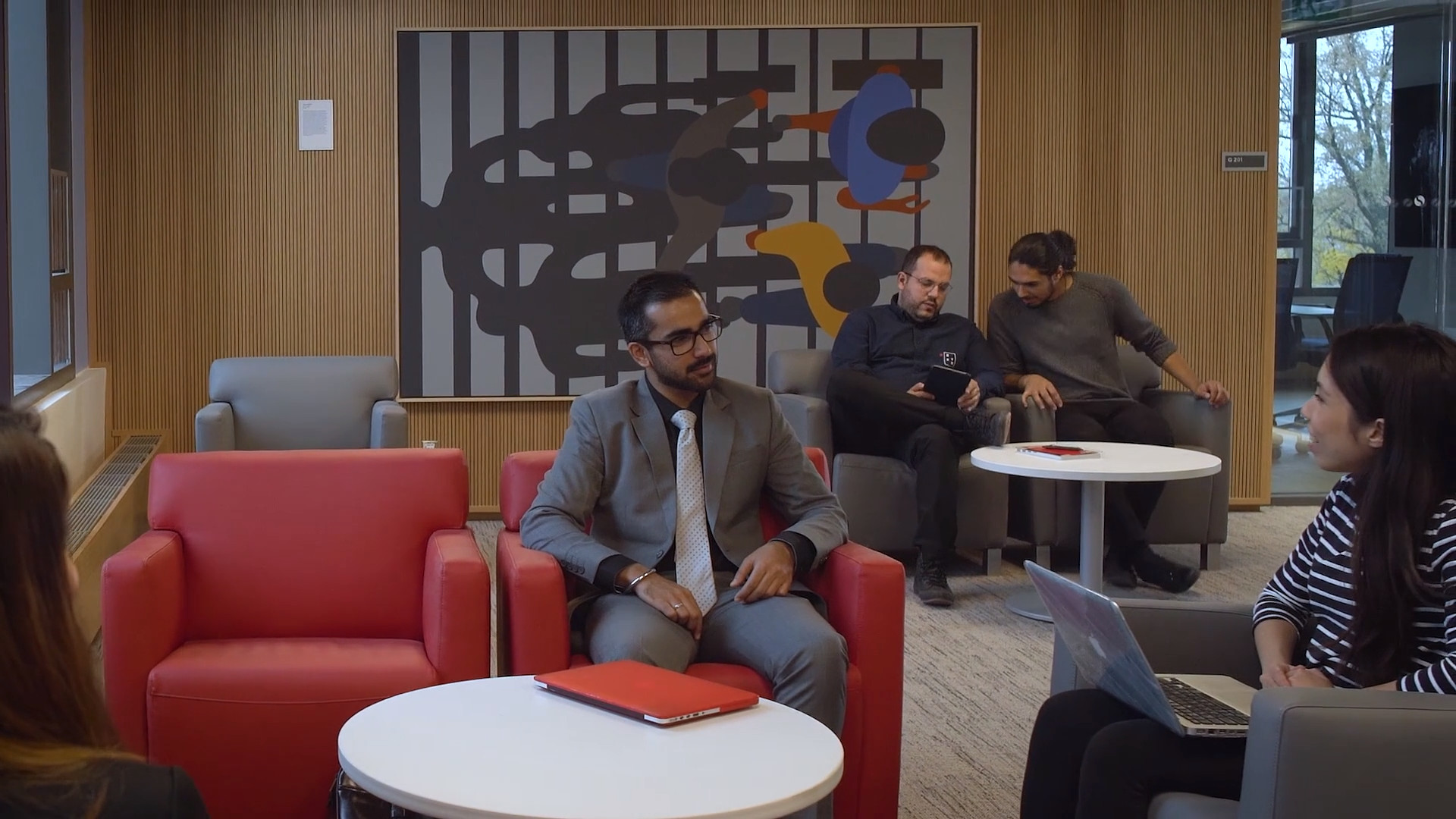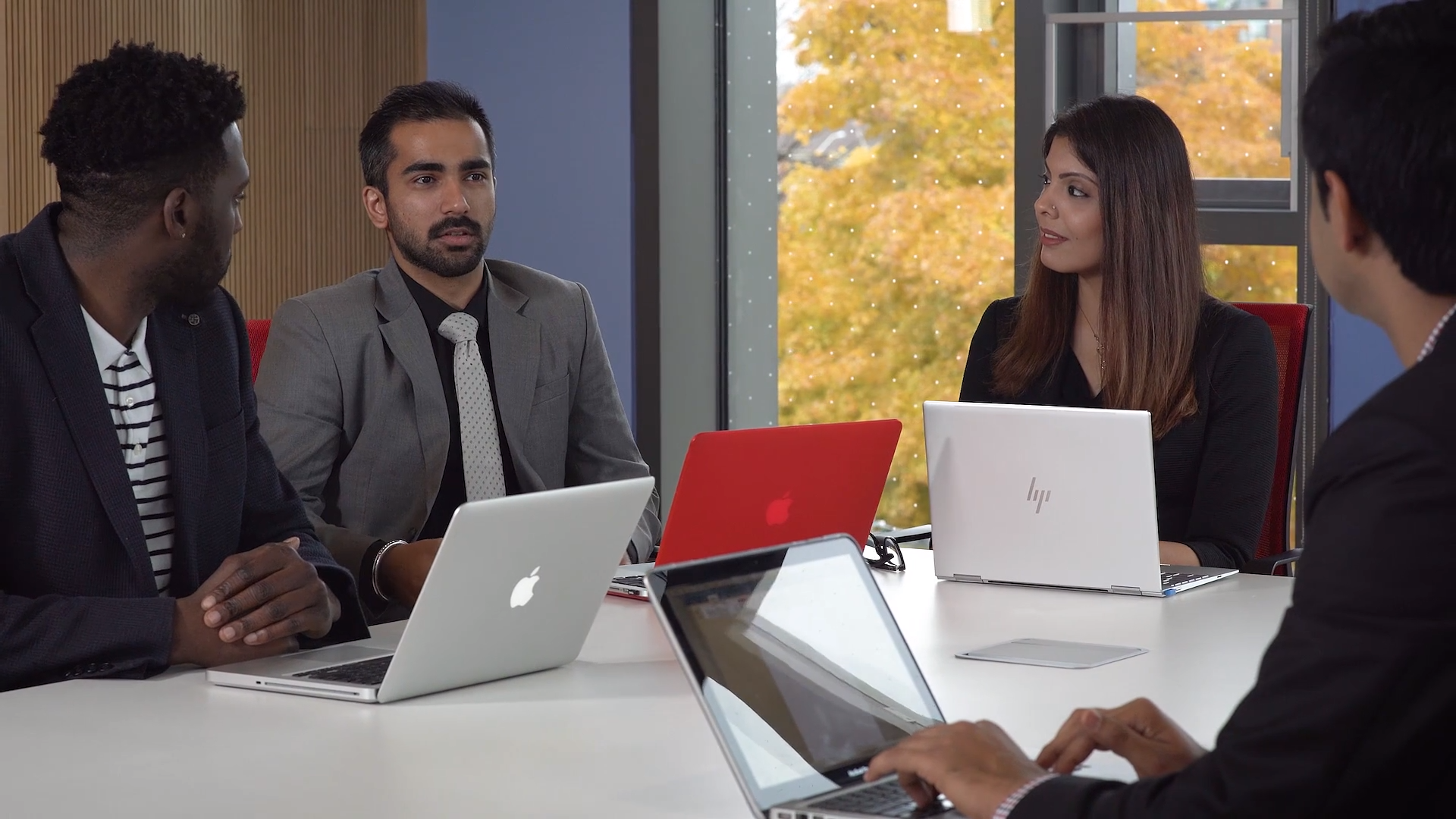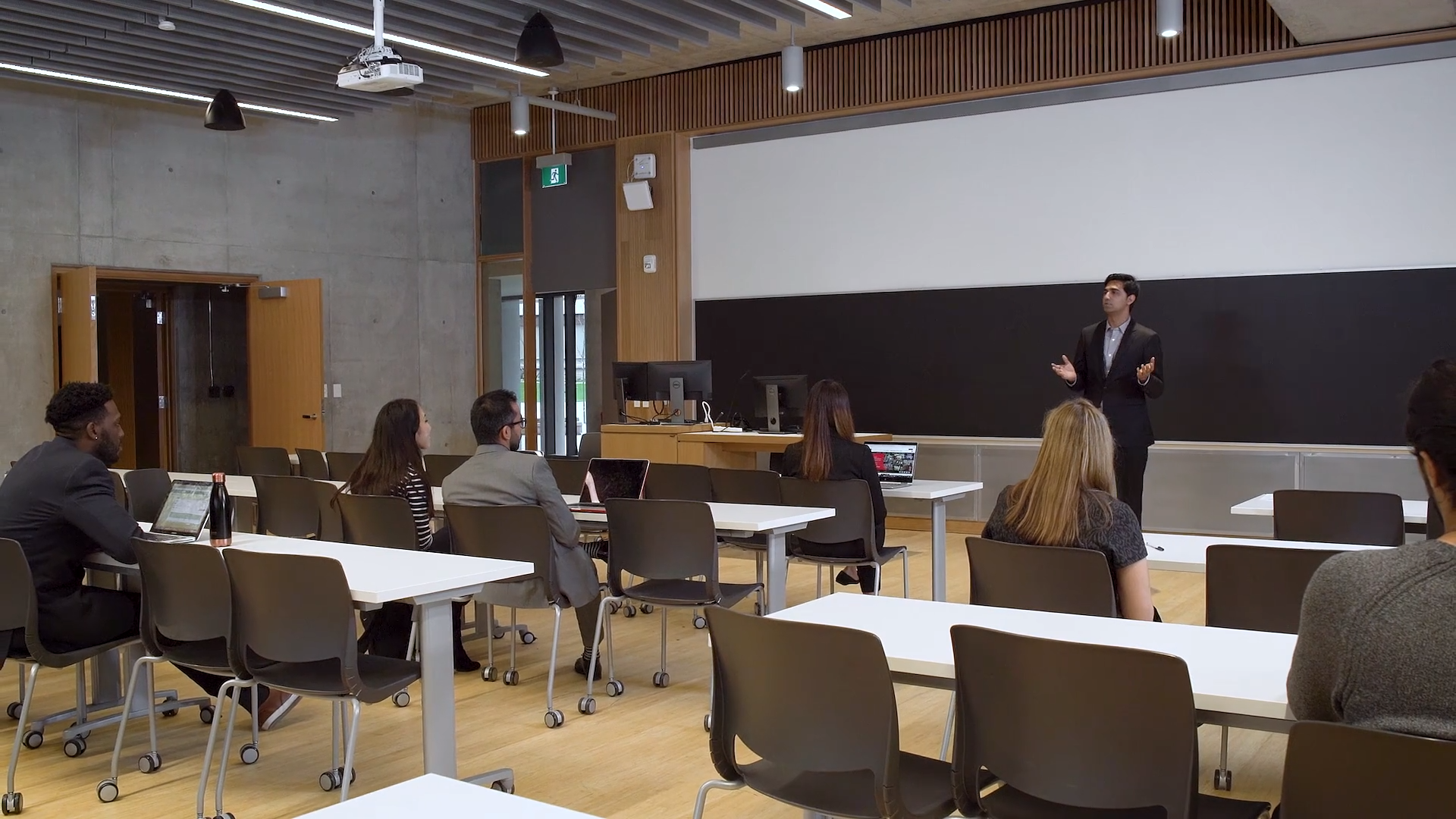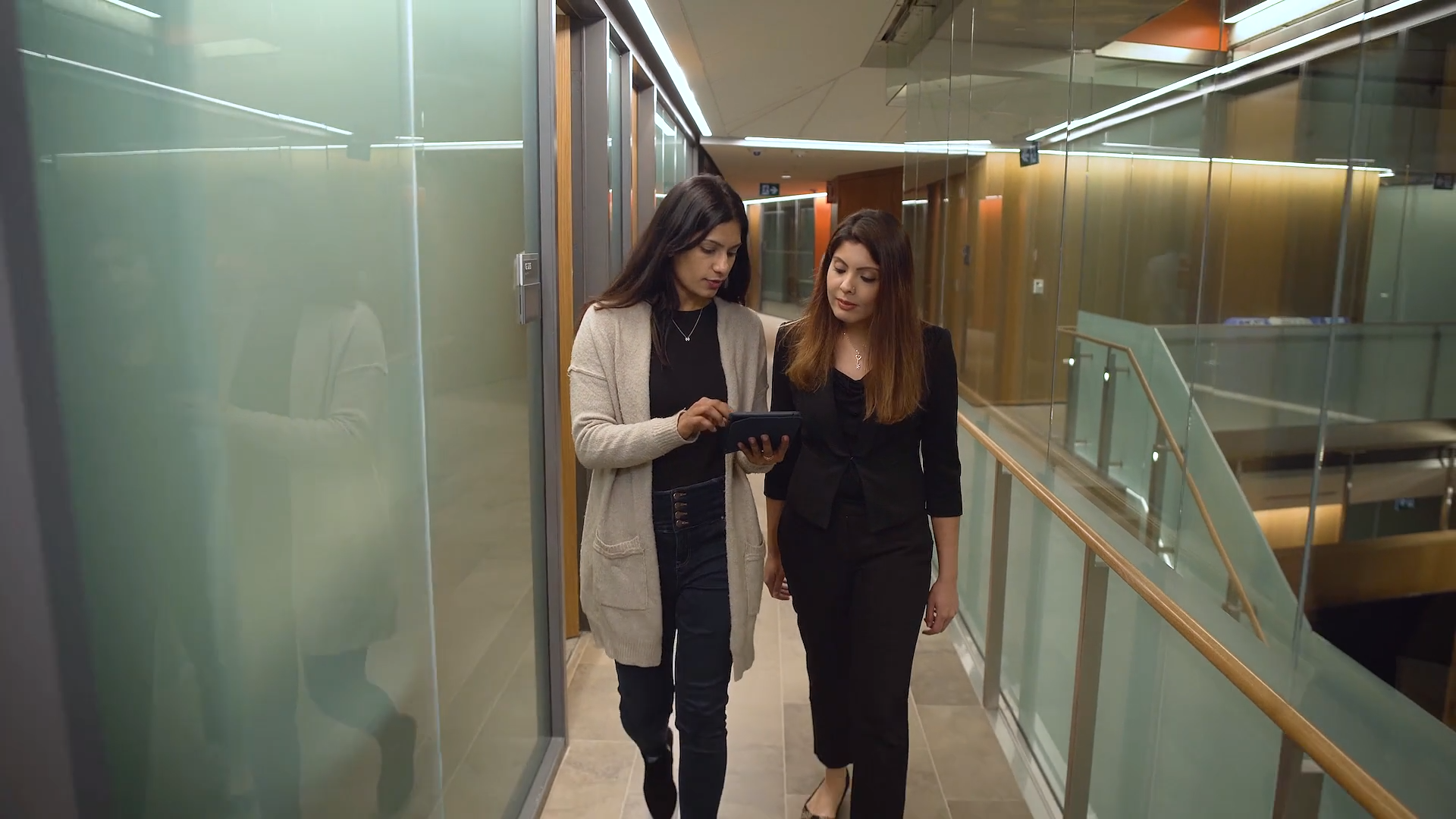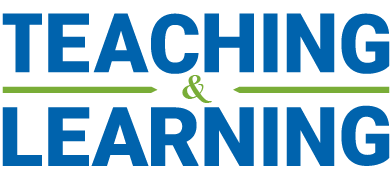Summary
Dean Detlev Zwick (former Associate Dean Academic) reviews the six principles of course design at Schulich.
Video Transcript
Here at Schulich, teaching has always been a major part of what we do. Seymour Schulich and our Dean recognized this early on and established several awards to celebrate teaching excellence. So for us, excellence in the classroom begins with quality course design. All that we do is about improving the learning experience for students, and with that in mind, we have developed a set of course design principles that serve as the foundation of what makes a Schulich course high quality, unique and impactful.
1. Student-Centred, Inclusive, Accessible
So, our first principle is that our courses are student-centred, inclusive, and accessible. What that means, first and foremost, is that we recognize that business is global and our courses, our faculty and our student body reflect this. So you as students each bring diverse backgrounds and experiences into the classroom and we want this diversity to enrich the learning experience. In fact, we believe that your diversity is one of our best resource for making the classroom engaging and relevant, discussions and teamwork more reflective of the real world, and collaboration and problem-solving better.
2. Clearly Articulated Learning Outcomes
Our second principle is that all of our courses have clear and well thought out learning outcomes. Learning outcomes describe what students should be able to do at the end of a course. So they’re really important. We are constantly talking to industry leaders, colleagues and students about what skills are expected from our graduates and we carefully design our learning outcomes to meet these needs.
3. Active Engagement
Our third principle is active engagement. How do we create this? We believe that learning is interactive and not just for the classroom. So our students work closely with their peers, with their instructors and companies to solve real world challenges. Students love the chance to get their hands dirty and to work on relevant problems and in the process build long-lasting relationships with industry that can fast-track success later on. We also bring in guest speakers, run negotiation simulations, and use our cutting-edge facilities like our Deloitte data analytics lab, to create real world learning experiences that are really unique to Schulich.
4. Critical Thinking and Problem-Solving Skills
Another key principle is that our courses help students to think critically and problem solve. It’s not enough to just learn content. It’s about being able to challenge what you learn and develop new ideas, create new approaches and skills to solve ever harder and more challenging problems. It’s about becoming an innovator.
5. Self-Reflection
Our fifth key principle is that our courses teach students to reflect on their own learning. To become a leader and innovative business thinker you need to be a great learner. And to become a great learner means that you need to reflect on how you learn, your strength and weaknesses, your successes and failures. This is hard work but we don’t leave our students alone on this journey. Your peers and our faculty are all ready to help you to become more self-aware and better learners.
6. Continuous Improvement
Our final principle is continuous improvement. Through student feedback, discussion with colleagues and feedback from industry, we constantly question our course content, learning outcomes and assignments and update them to create the most engaging and relevant classroom experiences. We also build new programs to reflect changes in business. Over the past 8 years we have built six new programs. this is what continuous improvement means to us.
So in short, when you come to Schulich you are joining a school that delivers a world-class learning experience, that is engaging, relevant, and challenging. And also, I promise, really fun.
Learn More
